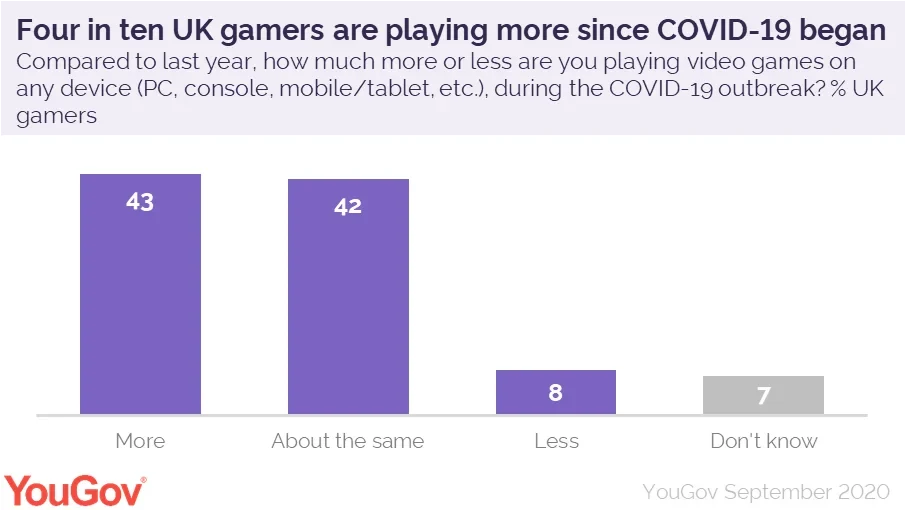
Four in ten gamers say they’ve played more during COVID-19
More than four in ten UK gamers say they’ve been gaming more during the COVID-19 outbreak (43%), while a further four in ten have been gaming about the same (42%). Just 8% say they’re playing less, a new YouGov white paper reveals.

Additionally a quarter of gamers say that once the pandemic is over, gaming will be “stronger and more relevant than ever before” (24%).
The data comes from YouGov’s Gaming and esports: The Next Generation white paper, which provides an analysis of the global video games and esports landscape across 24 markets.
UK gamers make up over two thirds of the population (67%); six in ten of this group say they play mobile games (52%); a quarter PC games (25%); and three in ten console games (28%).
Mobile gamers are the most significant consumer group worldwide, outnumbering console and PC gamers in every market, particularly in South and South East Asia. In Thailand, just 12% play on consoles compared to 78% who use a smartphone or tablet; in India, the proportion is 12% vs. 67%.
In contrast, the leading markets for console gamers as a proportion of the population are Hong Kong (32%), Spain (29%), the US (28%), the UK (28%), and Australia (27%). When it comes to new consoles, a fifth of gamers say they’re likely to buy Sony’s PlayStation 5 in the 12 months after its launch (19%) while one in ten are likely to buy Microsoft’s Xbox Series X (11%).
In the last decade game streaming has developed its own subculture online and has grown a following among British gamers. Twitch awareness among UK gamers is at 37%, while a quarter are aware of YouTube Gaming (25%) and one in six are aware of Facebook Gaming (16%).
When it comes to esports, although four in ten Brits (37%) are familiar with the industry engagement is relatively low. Just 6% of Brits are engaged with these competitions in some way. The majority of those who engage with esports are casual fans (61%) with just 5% saying they are passionately interested.
Download the Gaming and esports: The next generation white paper here